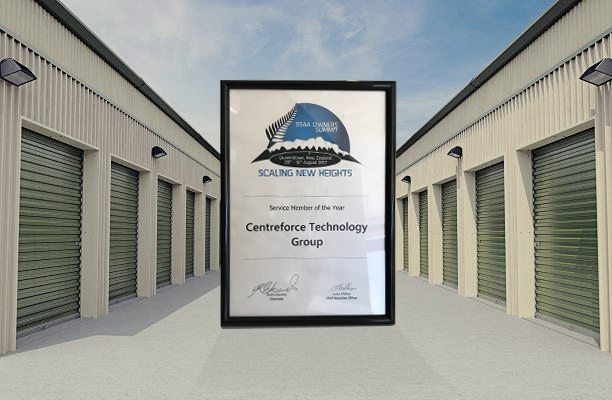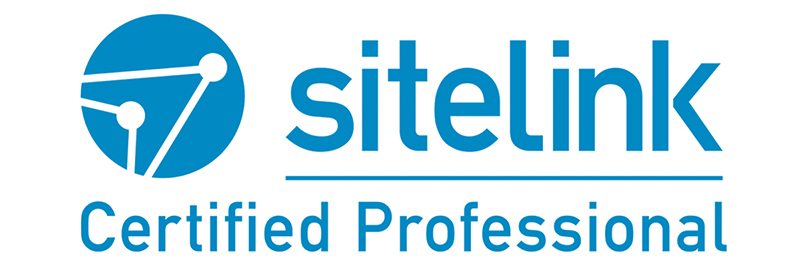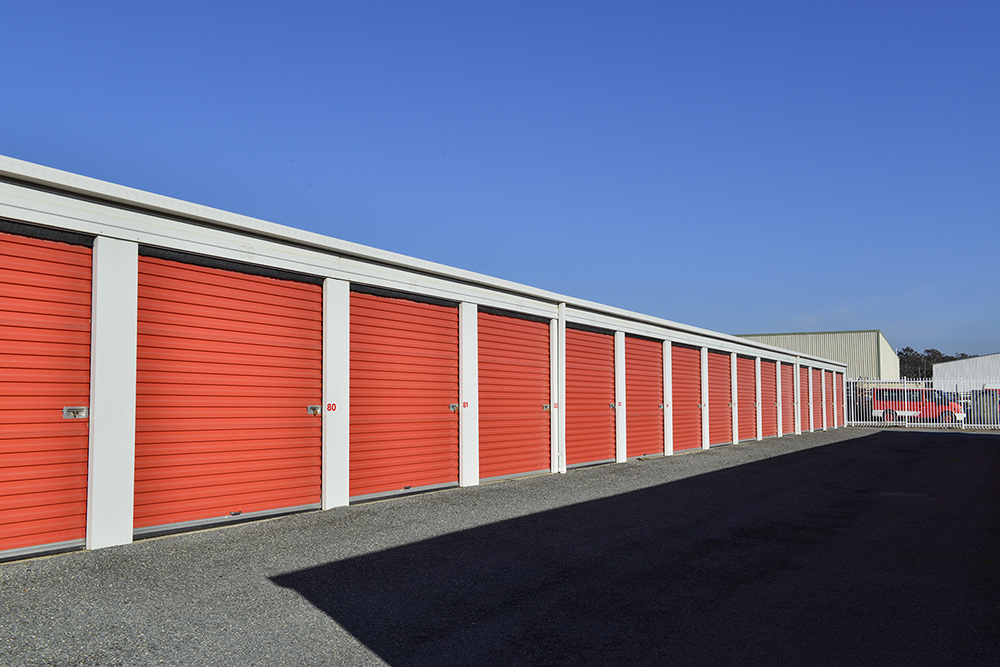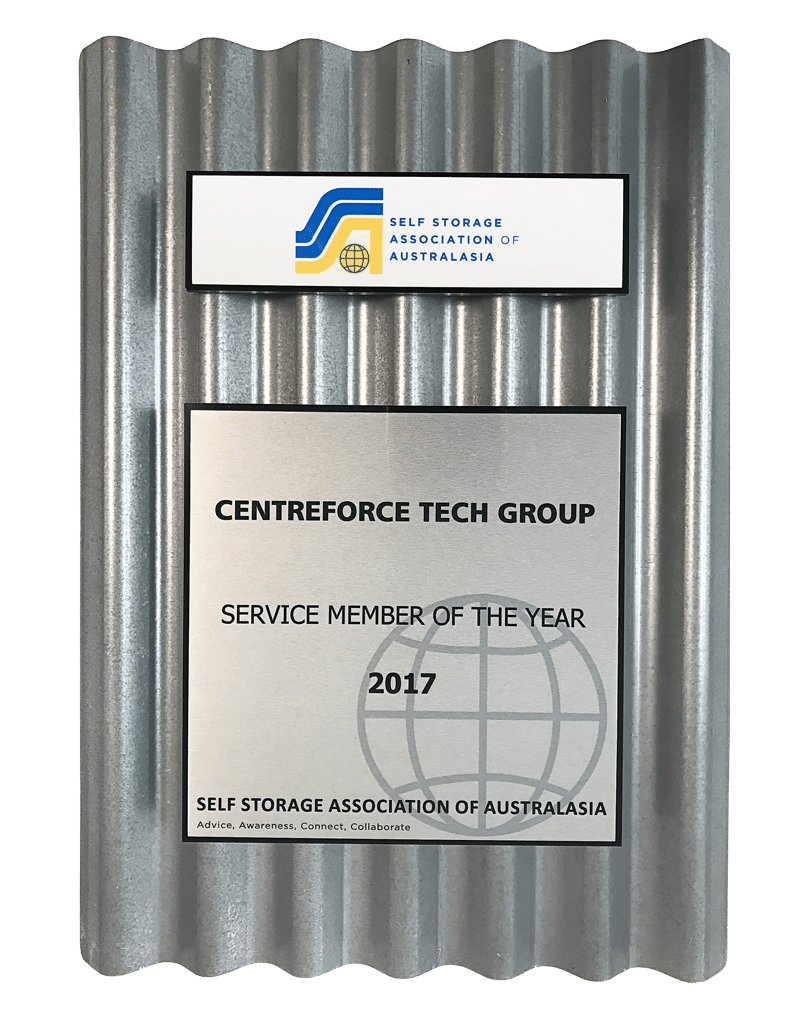Tag: SiteLink
The Benefits of Real-Time Data Analytics in Self Storage Software
Enhanced Decision Making
Real-time data analytics provides self-storage operators with up-to-the-minute information on all aspects of their business. From occupancy rates and rental trends to customer payment statuses and maintenance needs, having access to current data allows for more informed decision-making. With Sitelink’s real-time analytics, managers can quickly identify issues, seize opportunities, and make strategic decisions that drive business growth.Improved Operational Efficiency
Efficiency is crucial in the self-storage industry, where managing multiple units, customer interactions, and maintenance tasks can be overwhelming. Real-time data analytics streamlines these operations by providing instant visibility into facility performance. Sitelink’s software enables operators to monitor unit availability, track move-ins and move-outs, and manage reservations and payments seamlessly. This level of efficiency reduces downtime, minimises errors, and enhances overall productivity.Enhanced Customer Experience
Customer satisfaction is at the heart of any successful business. With real-time data analytics, self-storage facilities can offer a superior customer experience. Sitelink’s software allows for immediate response to customer inquiries and issues, personalised communication based on customer history, and timely updates on unit availability and pricing. This proactive approach not only meets but often exceeds customer expectations, leading to higher retention rates and positive word-of-mouth referrals.Optimised Pricing Strategies
Pricing strategy is a critical aspect of maximising revenue in the self-storage industry. Real-time data analytics provides insights into market demand, competitive pricing, and occupancy trends, enabling dynamic pricing models. It allows operators to adjust prices in real time based on current market conditions, ensuring that rates are competitive and aligned with demand. This flexibility helps in optimising revenue and maintaining a healthy occupancy rate.Enhanced Security and Risk Management
Security is a top priority for self-storage facilities. Real-time data analytics enhances security measures by providing continuous monitoring of access points, surveillance systems, and alarm triggers. Sitelink’s software can instantly alert operators to any suspicious activity, allowing for immediate action. Additionally, real-time data helps in managing risks associated with delinquent accounts by providing timely updates and automated reminders, reducing the likelihood of financial losses.Comprehensive Reporting and Insights
Real-time data analytics doesn’t just provide raw data; it translates it into actionable insights. In self storage software, these comprehensive reporting features allow operators to analyse performance metrics, identify trends, and forecast future needs. These insights are invaluable for strategic planning, resource allocation, and identifying areas for improvement. With detailed reports readily available, self storage operators can continuously refine their business strategies to achieve better outcomes.Competitive Advantage
In an increasingly competitive market, having a technological edge can make all the difference. Real-time data analytics gives self-storage operators the ability to stay ahead of the curve. By leveraging self storage softwares’ advanced analytics capabilities, facilities can respond quickly to market changes, optimise their operations, and deliver exceptional customer service. This competitive advantage not only attracts new customers but also strengthens relationships with existing ones.Embrace the Future with Real-Time Data Analytics
The integration of real-time data analytics in self-storage software, as exemplified by Sitelink, is revolutionising the industry. The benefits are clear: enhanced decision-making, improved operational efficiency, superior customer experience, optimised pricing strategies, heightened security, comprehensive reporting, and a competitive edge. By harnessing the power of real-time data, self-storage operators can drive their businesses to new heights of success. Investing in Sitelink’s self storage management software means embracing a future where data-driven decisions lead to smarter operations and happier customers. In an industry where every detail matters, real-time data analytics is the key to unlocking the full potential of your self-storage facility.Harnessing the Power of Social Media in Self Storage Marketing
The Changing Landscape of Self Storage Marketing
Traditionally, self storage marketing relied heavily on location visibility, print advertisements, and word-of-mouth referrals. However, as consumer behaviour shifts towards online research and engagement, social media has become a crucial element of a comprehensive marketing strategy. By leveraging these platforms, self storage businesses can reach a broader audience, tailor their messaging to target specific demographics, and respond quickly to market trends.Key Benefits of Social Media for Self Storage
- Increased Brand Awareness: Social media platforms offer extensive reach that can significantly enhance brand visibility. Regular posts, sponsored ads, and interactive content can help keep your storage facility top-of-mind for when potential customers need storage solutions.
- Enhanced Customer Engagement: Through social media, businesses can engage directly with customers, providing a platform for real-time communication. This engagement can be in the form of answering queries, sharing customer testimonials, or providing updates about facility improvements and promotions.
- Targeted Advertising: Social media platforms have sophisticated targeting tools that allow storage businesses to reach potential customers based on specific demographics, interests, and behaviours. This precision helps in directing marketing efforts to the most promising prospects, thereby increasing the chances of conversion.
- Competitive Analysis: Social media also provides an avenue to monitor competitors’ marketing activities. Understanding what competitors are offering and how they engage with their customers can provide valuable insights and help in crafting superior strategies.
Content is King: Creating Compelling Media
- Visual Storytelling: In the self storage industry, visual content can be particularly impactful. Use high-quality images and videos of your facilities, showcasing features like security, cleanliness, and accessibility. Before-and-after organisation videos or images can also be very engaging, demonstrating the value of self storage solutions in a relatable way.
- Educational Content: Provide value to your followers by posting tips on topics such as space optimization, decluttering, and seasonal storage. Webinars or live Q&A sessions can be scheduled using insights from SiteLink to determine when your customers are most active online.
- User-Generated Content: Encourage your customers to share their own stories and photos related to their storage experience. This not only provides authentic content for your platforms but also builds community and trust among potential customers.
Building Partnerships: Collaborate for Wider Impact
- Local Businesses and Influencers: Partner with local businesses and influencers to broaden your reach. For example, a collaboration with a moving company or a popular local blogger can introduce your services to a wider, yet targeted audience. These partnerships can be managed through cross-promotional campaigns and shared social media content.
- Community Involvement: Show your involvement in the community by participating in or sponsoring local events. Share these moments on social media and link them back to your SiteLink database to track the engagement and interest these posts generate.
Driving Conversions: From Likes to Leases
- Special Promotions and Offers: Use social media to advertise special promotions, discounts, or exclusive offers. Ensure these are timely and relevant, perhaps aligned with local events or seasonal storage needs. With SiteLink, you can manage these promotions effectively, adjusting offers based on inventory levels and customer demand.
- Call-to-Action: Every post should include a clear call-to-action (CTA). Whether it’s encouraging followers to sign up for a newsletter, visit a website, or book a storage unit, your CTA should direct them towards taking a concrete step. Integration with SiteLink allows for tracking these actions and seeing which social media platforms drive the most conversions.
Social Media & Self Storage Marketing
For self storage businesses, the integration of social media into marketing strategies is no longer just an option but a necessity. By understanding the dynamics of social media marketing and leveraging the capabilities of SiteLink, operators can enhance their customer outreach, refine their marketing strategies, and ultimately achieve greater business success. Embrace the power of digital and watch your self storage business reach new heights. Contact SiteLink today to take your first step into the future of self storage industry.Why Mobile Apps are Essential for Self-Storage Management
Streamlined Operations
One of the most significant advantages of mobile apps in self-storage management is the streamlining of operations they offer. Mobile apps enable facility managers to automate routine tasks such as billing, inventory management, and customer service. This automation reduces the likelihood of human error, increases efficiency, and allows staff to focus on more strategic aspects of the business. Furthermore, mobile apps can integrate seamlessly with existing software systems, ensuring a smooth operational workflow that benefits both staff and customers.Enhanced Customer Experience
At the heart of any successful business is a satisfied customer base, and the self-storage industry is no exception. Mobile apps significantly enhance the customer experience by providing users with the convenience of managing their storage units from anywhere, at any time. This includes the ability to check unit availability, reserve units, make payments, and even unlock their units remotely. Such features not only offer unparalleled convenience to customers but also position the storage facility as a forward-thinking, customer-centric business. Improved Security Security is a paramount concern in the self-storage industry, and mobile apps play a crucial role in bolstering the security measures of storage facilities. By enabling digital locks and providing real-time alerts and monitoring capabilities, mobile apps offer both customers and facility operators peace of mind. This enhanced security not only protects customers’ belongings but also reduces the risk of liability for storage facility operators, making it an essential component of modern self-storage management.Data-Driven Decision Making
Mobile apps also serve as a valuable source of data, offering insights into customer behaviour, preferences, and trends. This data can inform strategic decisions, such as pricing adjustments, marketing strategies, and facility expansions. By leveraging the analytical tools provided by mobile apps, storage facility operators can make informed decisions that drive business growth and enhance competitiveness in the market.Competitive Advantage
In an increasingly competitive market, offering a mobile app can differentiate a self-storage facility from its competitors. A mobile app not only demonstrates a commitment to leveraging technology for improved service delivery but also appeals to the tech-savvy demographic that values convenience and efficiency. By adopting mobile apps, storage facilities can attract a wider customer base, retain existing customers, and ultimately achieve a competitive edge in the market.Environmental Sustainability
The adoption of mobile apps also contributes to environmental sustainability by reducing the need for paper-based processes. Digital contracts, e-receipts, and online payments eliminate the need for physical paperwork, contributing to a reduction in paper waste. This not only aligns with the growing consumer preference for environmentally friendly businesses but also helps storage facilities reduce their operational costs and environmental footprint.24/7 Accessibility on Mobile Apps
Mobile apps provide customers with 24/7 access to their storage units and account information, breaking free from the constraints of traditional office hours. This around-the-clock accessibility is particularly beneficial for individuals and businesses that require frequent access to their stored items or need to manage their storage needs outside of regular business hours. By offering this level of convenience, storage facilities can enhance customer satisfaction and loyalty.Customer Feedback and Engagement
Mobile apps offer an effective platform for customer feedback and engagement, allowing storage facility operators to stay connected with their customers and respond to their needs promptly. Features such as in-app messaging, notifications, and surveys enable direct communication between the facility and its customers, fostering a sense of community and loyalty. This direct line of communication is invaluable for addressing customer concerns, gathering feedback, and continuously improving service offerings.Mobile Apps & Self-Storage
In conclusion, mobile apps are not just a technological trend but a necessity for modern self-storage management. They offer a multitude of benefits that extend beyond customer convenience to include operational efficiency, enhanced security, data-driven decision-making, and environmental sustainability. By embracing mobile apps, self-storage facilities can meet the evolving needs of their customers, differentiate themselves in a competitive market, and pave the way for future growth and success. In the digital age, the question is no longer whether storage facilities should adopt mobile apps, but rather how quickly they can integrate them into their operations to reap the manifold benefits they offer. Companies such as StorApp are paving the way for self-storage innovation.The Importance of Customer Centricity In Self Storage
The Essence of Customer-Centricity in Self Storage
At the heart of a customer-centric approach lies the commitment to understanding and meeting the diverse needs of your clients, ensuring their experiences are seamless, personalised, and positive from start to finish. This strategic orientation focuses on crafting services and interactions that prioritise customer satisfaction above all else, setting a new standard in the self storage industry.The Unparalleled Benefits of a Customer-Centric Approach
Adopting a customer-centric perspective offers a myriad of benefits that extend beyond immediate customer satisfaction. Firstly, it enhances customer loyalty, significantly reducing churn and fostering positive reviews that are instrumental in today’s digital age. This approach also creates a powerful word-of-mouth marketing effect, attracting new customers who are willing to pay premium prices for unparalleled service. By differentiating your facility from traditional self storage options, you not only elevate the customer experience but also establish a strong competitive advantage.Charting the Path to Customer-Centricity
Create an Engaging Online Presence focused on Customer-Centricity
The journey towards a customer-centric self storage facility begins long before a potential customer steps foot in your facility. It starts online, with a user-friendly website that offers online booking, real-time unit availability, virtual tours, and transparent pricing information. Coupled with responsive customer service via chat or email, this initial interaction sets the tone for a positive customer experience.Simplifying and Securing the Experience
The rental process is your opportunity to solidify the positive impression made during the initial online engagement. Streamlining the process with online rental agreements and secure payment options, complemented by an efficient move-in process, makes renting a unit a hassle-free experience. The importance of a clean, well-maintained facility cannot be overstated, providing a welcoming environment equipped with amenities like dollies and carts that further enhance convenience for customers.Sustaining Engagement and Security
Maintaining a focus on customer-centricity doesn’t stop once the rental agreement is signed. It extends throughout the entire rental term, characterised by excellent customer service, secure access with round-the-clock monitoring, and regular updates about promotions and facility improvements. This ongoing engagement is crucial for retaining customers and ensuring their satisfaction over the long term.Going the Extra Mile for Customer-Centricity
Truly customer-centric self storage facilities recognise the importance of going beyond the basics. Offering customer centricity value-added services such as packing supplies, moving truck rentals, and partnerships with local businesses for tenant discounts can significantly enhance the customer experience. Hosting community events not only strengthens relationships with tenants but also fosters a sense of community, making your facility more than just a place to store belongings—it becomes a valued part of your customers’ lives.The Road To Customer Centricity
At SiteLink, we believe the shift towards a customer-centric approach in the self storage industry is more than just a trend; it is a strategic imperative for those looking to thrive in an increasingly competitive landscape. By focusing on the customer experience at every touchpoint, self storage facilities can differentiate themselves, foster loyalty, and achieve sustainable growth. This commitment to customer-centricity should be reflected not only in the services and amenities offered but also in the culture of the organisation, ensuring that every interaction is aligned with the goal of exceeding customer expectations. As we look to the future, the importance of this approach will only continue to grow. Now is the time for self storage facility owners, managers, and potential investors to embrace these customer centricity principles and implement strategies that place the customer at the heart of their operations. By doing so, they can ensure their facilities are not only meeting but surpassing the needs of their customers, securing their position as leaders in the self storage industry. To learn more about how SiteLink puts customers first in self storage, view their customer testimonials page.SITELINK FINALIST FOR INNOVATION AWARD
SiteLink was a finalist for the Innovation Award presented by the Self Storage Association of Australasia (SSAA) at the 2017 SSAA Owners Summit gala presentation dinner in Queenstown, New Zealand.
The SSAA is Australia and New Zealand’s peak body representing the Self Storage industry and provides services to more than 850 members. Each year, the SSAA Awards recognise the excellent service providers within the Australasian Self Storage industry across a variety of awards. As the peak industry body, these annual awards are important indicators of success and are highly regarded by customers and other businesses alike.
In 2017, SiteLink was a finalist for the Innovation Award, an award designed to recognise service providers pushing boundaries with innovative technologies. SiteLink is no stranger to recognition on this scale, and has been the recipient of the Best Management Software award at Inside Self Storage’s annual Best of Business Awards for several years.
“Being a finalist for the Innovation Award in 2017 was great. To have SiteLink be recognised for the work we put in is outstanding. I am so proud of our entire team: Therese, Michael, Curt, Jake, Andrew, Brooke, Rachel, Emma, Shane, Harry, Joe, Justin, David and Ben. Staff make a business and we have the best,” said Dallas Dogger, CEO of Centreforce Technology Group, SiteLink’s representative company.
“Our team is made up of admin, programmers, support techs, graphic artists, and marketing and web professionals. No other Self Storage supplier in Australia has so many professional staff, all working to make Self Storage work for our customers,” Dogger said.
SiteLink being a finalist for the Innovation Award wasn’t the only positive from the awards evening, with Centreforce Technology Group also receiving the Service Member of the Year Award, for the third time in four years.
If you’re interested in utilising one of the most awarded storage management softwares for your Self Storage facility, contact the team of SiteLink experts today.
SITELINK CERTIFIED PROFESSIONAL – DEVELOP YOUR SKILLS FOR BETTER RESULTS
When we jump on the plane for our next trip, we assume plenty of things. Firstly, the plane is safe. Secondly, the pilot and co-pilot know what they’re doing. It’s a natural assumption. We can argue they’re well-trained. We also make the same assumptions about brain surgeons.
But are these the only professionals competent at their job? Lots of people go to work and do their best everyday, but how many of them know how to do that job the best way they can?
Some might argue running a Self Storage site isn’t rocket science. It may not be, but the task to manage and operate a modern Self Storage facility is somewhat more complex than it used to be. Self Storage is so much more than move ins and move outs and few box sales.
Self Storage staff are often depicted as sitting back all day, waiting to rent a space. Modern business is competitive – sitting around won’t generate business! Arguably, the role of the Self Storage Manager has evolved into a multi-disciplined professional, responsible for the smooth running of a major asset.
Equally, Self Storage management software delivers much more to users. Training staff is a huge cost for Self Storage owners, and the SiteLink Certified Professional (SCP) eLearning programme is designed to help with training new and existing staff on how SiteLink works and how it can benefit the user.
Managers have access to sophisticated rental management tools, revenue management, CRM, and much more, requiring professional skill to take advantage of the built in features of SiteLink Web Edition.
Self-paced, the SCP programme delivers multi-level training, with certification as each level is completed and achieved. Not only is certification good for staff, but owners can also have confidence knowing staff have been professionally educated by the SiteLink team.
Understanding how SiteLink Web Edition works seems like a basic concept; however, our support calls show some don’t have the basics locked down. More intensive and complex tasks are also covered in the SCP programme. The training modules allow staff to learn to suit themselves and their role within the business.
SCP provides all stakeholders with a clear indication of the skill set that each staff member has. If you’d like to enrol your staff in the SiteLink Certified Professional programme, click here. If you have more questions, contact us today.
SITELINK ENDS SUPPORT FOR MICROSOFT VISTA
Microsoft ended support for the Microsoft Vista operating system on April 11, 2017. This operating system is no longer considered secure and is not PCI Compliant for credit card security. The Vista operating system only supports Transport Layer Security (TLS) 1.0 and does not support TLS 1.1 or TLS 1.2 which makes all communication between that computer and cloud based services like SiteLink not secure.
On October 31st, 2017, SiteLink will block all TLS 1.0 connections to our infrastructure to maintain the highest levels of security. If you are using the Microsoft Vista operating system, you will no longer be able to connect to SiteLink. You need to update any Vista computers running SiteLink to a newer operating system before that time to ensure continuity of service. SiteLink recommends using the Windows 10 operating system, but at this time we continue to support Windows 7, Windows 8 and Windows 10.
Transport Layer Security (TLS) is the security mechanism that allows for secure communication to any HTTPS website or web service. Anytime you use a website browser to access a secured website, your computer is using either TLS 1.0, TLS 1.1, or TLS 1.2. The greater the version number, the better the security. For PCI Compliance (credit card security) it is required that TLS 1.0 be disabled since it is no longer secure. TLS 1.1 and TLS 1.2 are still considered secure and are now required.
If you have any questions, please contact the SiteLink support team.
MANAGING YOUR FACILITY WITH STORAGE MANAGEMENT SOFTWARE
The effective management of a Self Storage facility is absolutely essential for success. Without any storage management software, effectively managing a Self Storage facility would be next to impossible and very impractical. SiteLink is the best storage management software when it comes to managing your facility to maximise your success. Here are a few reasons why.
Reporting for analysing data
When it comes to effectively managing a Self Storage facility, the ability to report on and analyse data is incredibly important. The ability to access real-time reports on any computer or mobile device is a huge advantage as it allows you to analyse your data quickly and easily. This data analysis can help you establish the successes of your facility, which can show you what you need to do more of. It can also help you establish the shortfalls of your facility and help you establish solutions to turn these aspects around.
Automation to save time and money
The essential daily processing tasks associated with effectively managing a Self Storage facility can take up a lot of time and effort. With a storage management software like SiteLink, these daily processes are completely automated. This automation means you’re able to spend more time focused on activities that will bring more value to your Self Storage facility, which can lead to more profit and success in the long run.
Storage management software with excellent support
SiteLink offers customers an incredible amount of support. If there’s an issue with your storage management software, our support services are there to help create a solution. With the excellent customer support SiteLink provides, your problems can be solved quicker and easier. This can lead to a more effective management process and in turn, to more profits.
SiteLink’s excellent customer support, automation processes, and ability to access real-time data makes it the best storage management software available to Self Storage owners. If you’re looking to maximise your profits through an effective management process, make sure you take advantage of the benefits of SiteLink Software. Contact us today to learn more.
CENTREFORCE WINS ‘SERVICE MEMBER OF THE YEAR’ AGAIN
The Self Storage Association of Australasia has awarded the industry’s most prestigious supplier award to the Centreforce Technology Group at their gala presentation dinner in Queenstown, New Zealand last week.
The award is significant recognition by the Self Storage industry of the service provided to its 850 plus members across Australia and New Zealand
Centreforce has been at the forefront of Self Storage Industry technology for 17 years. Representing SiteLink, the industry’s most awarded Self Storage Management software since 2007, Centreforce has built a fine reputation for delivering technology to the fast paced and ever-changing Storage industry.
“Winning this award in 2017 has special significance for us as we have won this award three times in four years, including the inaugural year. I am so proud of our entire team: Therese, Michael, Curt, Jake, Andrew, Brooke, Rachel, Emma, Shane, Harry, Joe, Shane, Justin, David and Ben. Staff make a business and we have the best,” said Dallas Dogger, CEO.
“Our team is made up of admin, programmers, support techs, graphic artists, and web professionals. No other Self Storage supplier in Australia has so many professional staff, all working to make Self Storage work for our customers,” Dogger said.
The Self Storage Association represents most of Self Storage operators in Australasia and the Self Storage industry is a 10 billion industry in Australia.
Centreforce are known as the innovators in the industry and have led technological innovation in Self Storage products. The company has developed ‘RapidStor‘, a fully integrated online marketing tool that Self Storage operators use to market Self Storage spaces that are available in real time, with over 9,000 Self Storage rentals being completed.
The company uses cutting edge, high-tech software to deliver Self Storage websites via their R6 Web Design™ brand and is the largest provider of Self Storage websites in Australia.
“We focus on service to our users. Their experience with our software and products is the most important thing to us.”
In 2017, the company developed an online e-learning programme for SiteLink users delivering education resource to many hundreds of Self Storage staff members, developing their professional skills, lifting service standards in Australia.
Self Storage as an industry is growing: it employs thousands of people and provides a much needed community resource and with downsizing of the average block of land and the inner city trend to develop high rise accommodation, the need for Self Storage space is growing and new developments are on the rise.
Consumer behaviour has changed and many potential storers turn to Self Storage websites for advice on storage.
Centreforce develops software that Self Storage operators can use to attract these customers.









